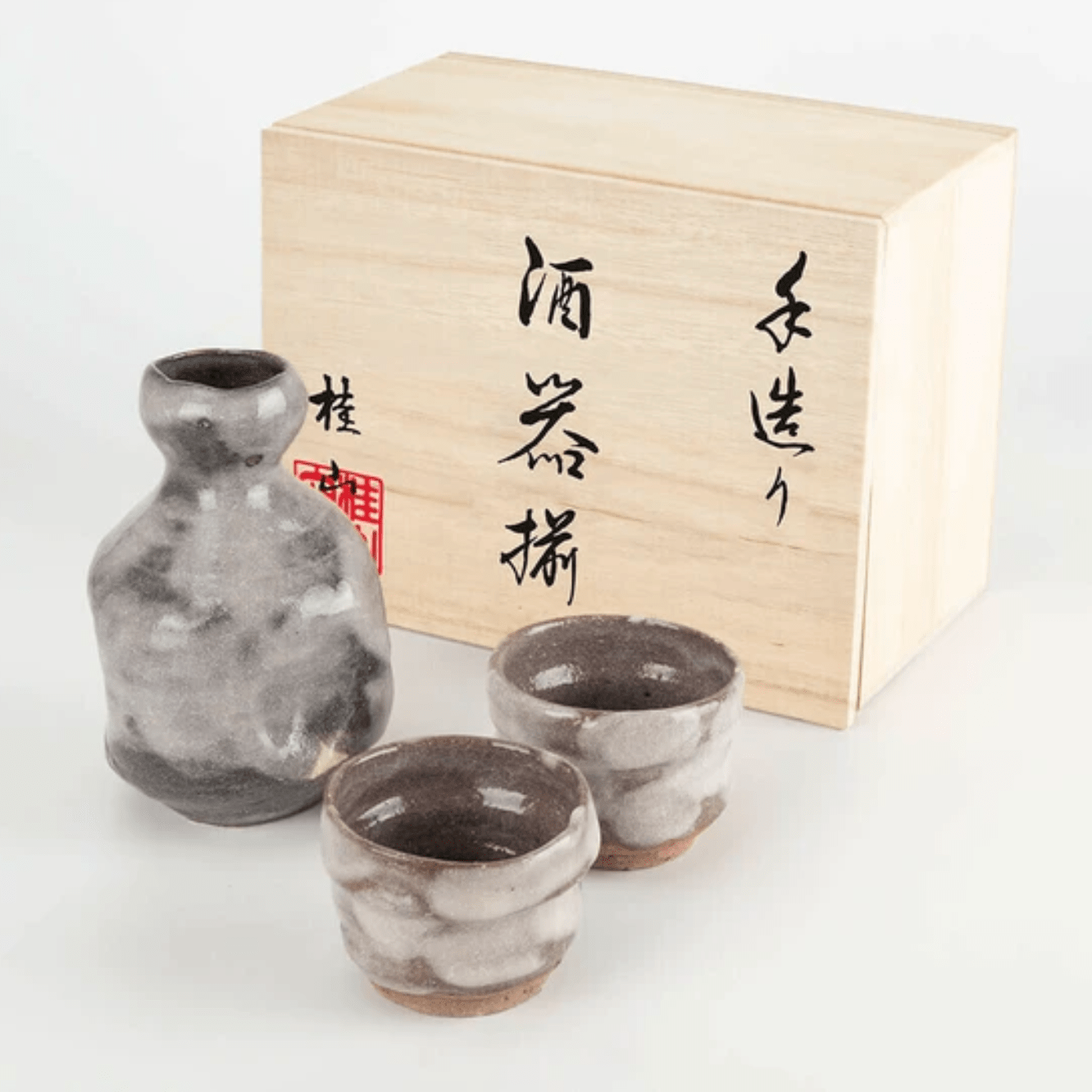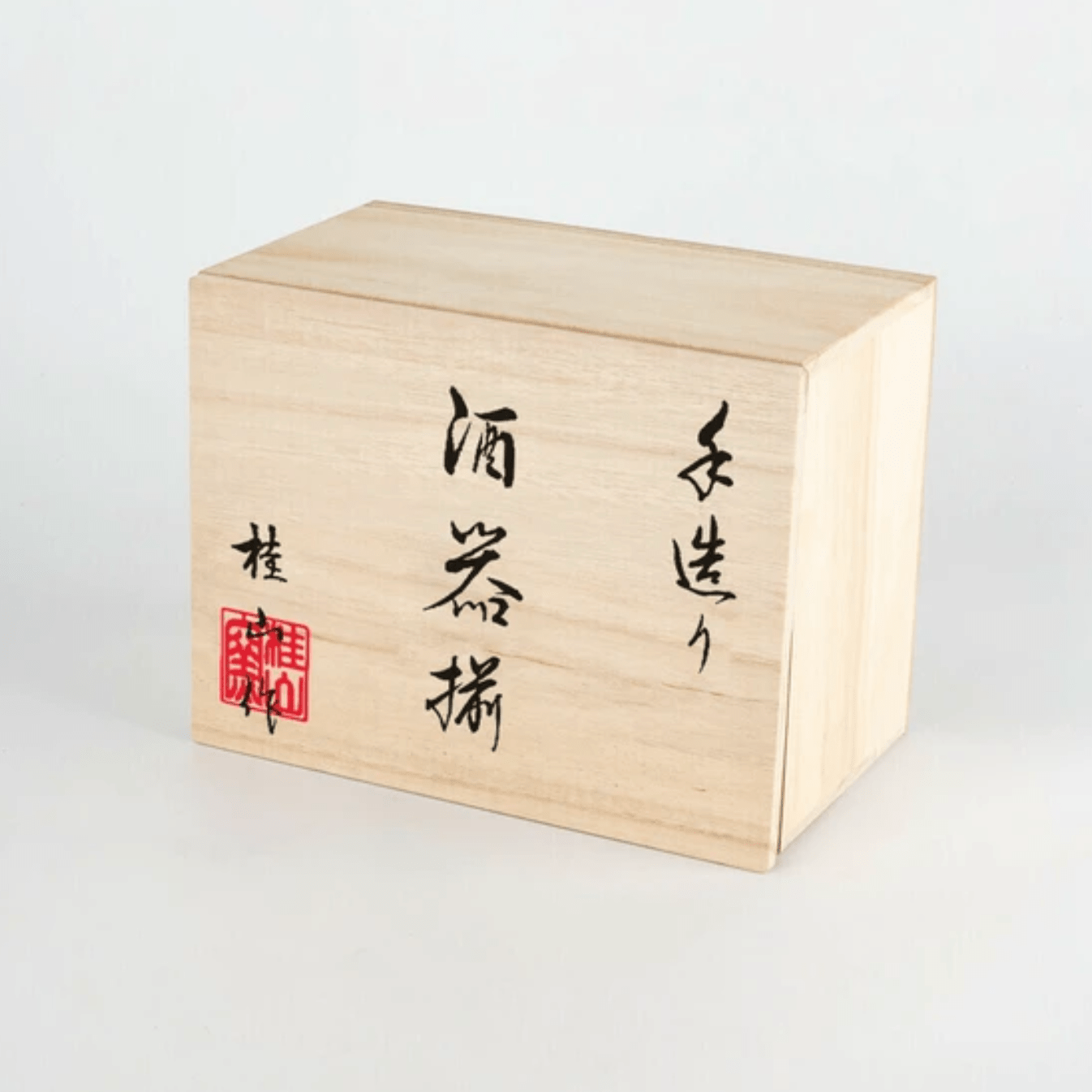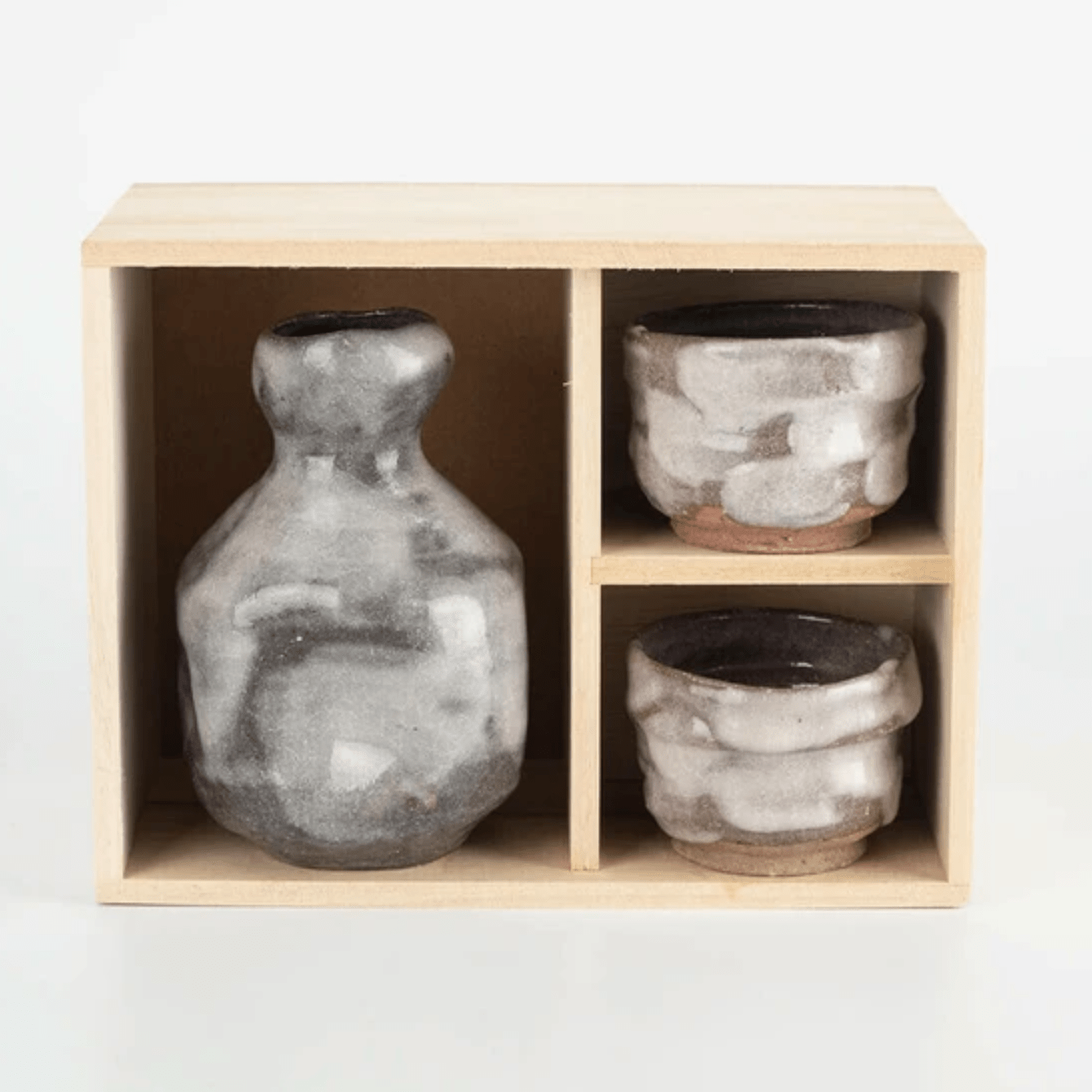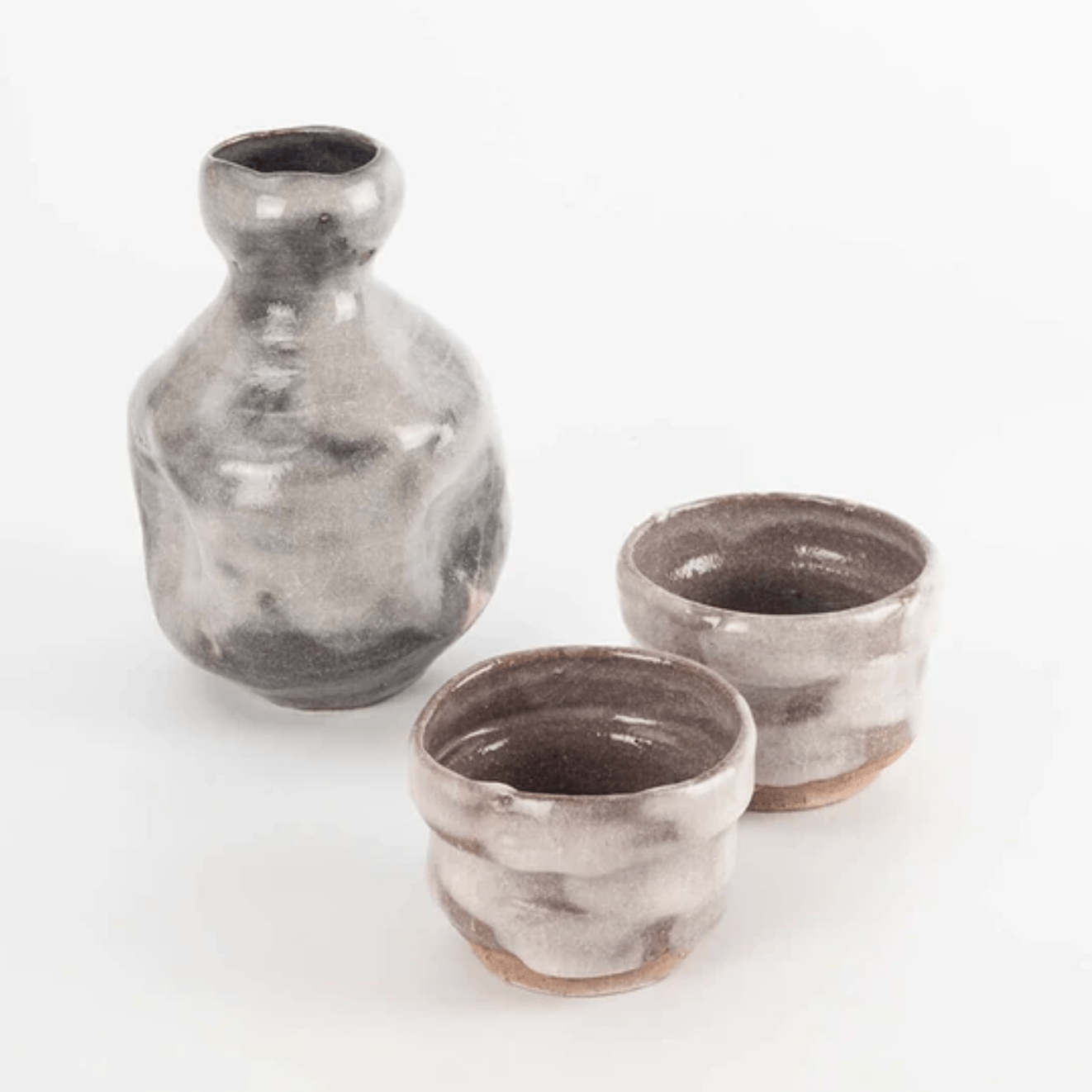



Handmade Nezumi Shino Sake Set
Fast & Secure Delivery from Japan to your Door [Shipping Policy]
No surprise U.S. customs fees. [How we handle U.S. Customs for you]
Shop Safely with Encrypted Checkout and Verified Gateways.
Pairs well with

Handmade Nezumi Shino Sake Set
Earth Meets Mist – Handmade Nezumi Shino Sake Set by Keizan Kiln
This Handmade Nezumi Shino Sake Set embodies calm, character, and heritage. Crafted by Kazufumi Wada, a Takuo Award-winning master potter from the celebrated Keizan Kiln, each piece reflects a perfect harmony between function and artistry. The Nezumi Shino (literally “mouse-grey Shino”) finish lends a moody, atmospheric tone, reminiscent of ink-wash landscapes and winter mists.
The Oni Shino glaze is a deeper, more intense variant of traditional Shino, delivering bold contrast and movement across each hand-thrown piece. The tokkuri (sake bottle) features an organic silhouette and gently flared rim, while the two ochoko (cups) invite a tactile experience with their rounded, textured forms. Shades of stone grey, ash, and warm clay swirl and settle in a natural rhythm, making no two sets alike.
Wooden Gift Box & Organic Aesthetic
Packaged in a wooden box hand-inscribed with Japanese calligraphy, this set is ideal for personal rituals, special gatherings, or as a meaningful gift. Whether filled with warm sake on a quiet night or offered at the center of a table, the Nezumi Shino Sake Set encourages mindfulness and appreciation for subtle beauty.
Let each pour become a ceremony with this one-of-a-kind set—where tradition, texture, and tranquility come together in timeless form.
Product Information
Care instructions
Note
FAQs
All you need to know about Japanese Pottery.
What types of traditional pottery are made in Japan?
Japan is home to several renowned pottery styles, including Mino ware (Gifu), Bizen ware (Okayama), Arita and Imari ware (Saga), Shigaraki ware (Shiga), and Mashiko ware (Tochigi). Each region has its own distinct materials, glazes, and firing techniques that reflect local history and aesthetics. Toki City in Gifu Prefecture is particularly renowned as the heart of Mino ware (Minoyaki)—the most widely produced pottery style in Japan.
What materials are used in artisan Japanese pottery?
Most artisan pottery in Japan is made from locally sourced clay, often mixed and refined by hand. Natural minerals and ash are used in glazes, and many pieces are wood-fired or fired in traditional climbing kilns (noborigama), producing unique surface textures and natural variations.
Are artisan Japanese pottery pieces safe for food use?
Yes. Authentic artisan pottery is made with food-safe, lead-free glazes and is carefully fired at high temperatures to ensure durability and safety. However, it's important to follow care instructions, especially for unglazed or porous ceramics.
What makes Japanese pottery different from Western ceramics?
Japanese pottery often emphasizes wabi-sabi—the beauty of imperfection—resulting in organic shapes, subtle asymmetry, and natural glazes. Unlike Western ceramics, which may prioritize uniformity, Japanese pieces often celebrate the individuality of each item, reflecting the artist's hand and the firing process.
How should I care for artisan-made Japanese pottery?
Hand-wash pottery with mild soap and avoid extreme temperature changes (like placing hot items into cold water). Some unglazed pieces may absorb moisture, so allow them to fully dry before storing. Avoid microwaves or dishwashers unless the piece is specifically labeled as safe for such use.
Do I need to season my matcha bowls before using them?
In most cases, seasoning a matcha bowl is not necessary—especially if the bowl is fully glazed, as the glaze naturally seals the surface and makes it ready for use. However, if the bowl is unglazed or has a raw clay base, a simple seasoning process called medome can help prevent cracking or staining. To season, soak the bowl in warm water mixed with a spoonful of cooked rice or flour for about 30–60 minutes, then rinse and let it dry completely. This step helps fill tiny pores in the ceramic and adds durability over time.

